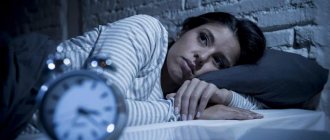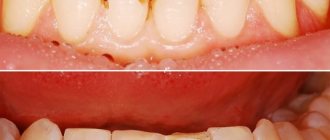Teenage sleep disorders
We are talking about many different factors.
Sleep hygiene includes a comfortable bed and pillow, silence, fresh air and optimal temperature in the room. Sometimes awakening can be provoked by the bright rays of the sun or the shining moon, and sometimes by loud music in a nearby club. Violation of sleep rules can manifest itself with symptoms such as:
- inability to sleep (regardless of extreme fatigue);
- early awakening;
- shallow sleep with frequent awakenings.
Why does insomnia happen?
The diagnosis of chronic insomnia is made when there are repeated sleep disturbances over the course of a month.
If a person cannot sleep for three or more weeks, and after a long-awaited fall asleep, he tosses and turns in bed all night and periodically wakes up - these are classic manifestations of insomnia. To solve the problem, you should find out what causes insomnia in a particular case. This may be one reason or a whole complex of them.
Common factors that cause sleep disturbances include the following:
- diseases that result in severe physical pain (especially at night);
- symptoms of some diseases that do not allow a person to sleep peacefully at night (cough and feeling of lack of oxygen - with bronchial asthma, frequent urination - due to kidney problems);
- heart disease;
- post-traumatic stress, depression;
- change in environment (loud noises, too bright street lighting, new place of residence);
- change of professional activity, resulting in a change in daily routine;
- overstrain of the nervous system before bedtime (excitement before an exam, interview);
- abuse of alcohol, coffee, psychotropic drugs;
- apnea - involuntary temporary pauses in breathing during sleep.
Causes of insomnia
Based on duration, insomnia is classified into transient (lasting no more than a week), short-term (lasting from 1 to 4 weeks) and chronic.
The causes of transient insomnia are:
- emotional experiences, acute stress, anxious thoughts that prevent you from falling asleep;
- information overload;
- changes in a person's life;
- change of time zones;
- sleep disturbance.
Women are more likely to suffer from insomnia than men. First of all, this is due to the fact that they react more emotionally to everyday troubles and are more often irritated and nervous. The second reason is physiological: monthly changes in the endocrine system before menstruation, hormonal imbalance during pregnancy and menopause.
Statistics show that women of any age are several times more likely to suffer from insomnia than men. And this fact is primarily due to the fact that, by their nature, women are more emotional and experience more deeply even events that seem insignificant to an outsider’s eye, if they are connected with them or their close environment.
If a man looks at a problem solely from the point of view of its solution, then a woman “lives” it, and often in a variety of ways - both positive and negative. Naturally, her brain and nervous system are more stressed, and it is more difficult for them to switch off for proper rest. Psychological causes of insomnia in women are considered the main ones.
Many people don't even realize that falling asleep is a constantly repeating ritual for us, which gives the brain and body a signal that the day is over, now you can switch off and relax. Try to observe what actions you perform within 1-2 hours before falling asleep. And you will see how many little things are repeated day after day.
Any significant violation of this ritual leads to the fact that the brain experiences anxiety and tries to maintain control over what is happening. This is why many people cannot sleep, sometimes for up to several days, in a new place. The brain needs time to restructure and accept a new ritual. Lack of sleep can also be caused by sudden changes in climate or time zones.
The psychological reasons that can provoke insomnia in women can be listed endlessly: from worries about a purchased/unpurchased new dress to stress caused by parting with a loved one. Here everything depends on the emotionality of the woman herself and on her ability to adequately respond to stressful situations.
Doctors consider the most serious factors provoking insomnia (and not short-term sleep disorders) in women:
- frequent or prolonged stress;
- protracted conflict situations;
- separation from a loved one;
- engagement and wedding preparations;
- pregnancy and childbirth;
- change of place of work or residence;
- the need to keep an important secret;
- loss of a loved one.
The inability to disconnect from experiences even in a dream often provokes the appearance of nightmares, which can be repeated night after night until the problem is solved in reality. Many women cannot fall asleep simply because they are lying in bed waiting for a repetition of a terrible dream, and the brain, naturally, receives exactly what it is tuned to.
In this case, only a qualified psychologist, properly conducted meditation or systematic yoga classes can help. As a complement to them, folk remedies for insomnia work great. But using only folk recipes will not bring tangible results.
In addition to hormonal ones, there are also psychological reasons for such problems as insomnia. A woman is naturally worried about the changes happening to her.
Chronic insomnia is said to occur when difficulties with falling asleep and shallow, short sleep are observed for more than 1 month. For a long time it is not possible to get a good night's sleep, completely immersed in sleep. Causes of chronic insomnia can be:
- change in situation (moving, appearance of irritating factors)
- change of job, type of activity
- depression
- mental disorder associated with recent trauma or illness
- heart diseases
- illnesses that cause physical pain
- kidney disease complicated by frequent urge to urinate
- apnea
- bronchial asthma
- drinking large amounts of coffee, alcohol
- abuse of psychotropic drugs
According to statistics, every fifth child experiences sleep problems. Often, children's insomnia is temporary, and apart from a violation of the regime, nothing bad happens. But in some cases, a sleep disorder can negatively affect the child’s health: in addition to fatigue, weakness, anxiety and dizziness, brain activity can slow down.
The causes of insomnia depend on the age of the child. From birth to one year, a baby may confuse day and night due to imperfections in the nervous system. As the child grows up, he gets used to the correct routine and his sleep returns to normal. But if the baby’s night waking is accompanied by crying, tears or other manifestations of dissatisfaction, parents need to carefully monitor the child to rule out:
- colic, pain in the tummy
- ear pain
- diaper rash, irritation, prickly heat
Less commonly, light or noise may disturb a baby's sleep. But dry air and heat in the room can cause discomfort to the child, causing restless and shallow sleep.
The following can ruin a night's sleep for children aged 3–6 years:
- reflecting on the information received during the day
- overstimulation resulting from watching cartoons
- developing colds
Teen sleep is different from childhood and adult sleep. This is explained by the lack of the hormone responsible for sleep, melatonin, in the body of adolescents. It is very easy for young people to stray from their normal sleep schedule for a long time for minor reasons. The impetus for teenage insomnia can be:
- insufficient physical activity
- acquisition of bad habits
- dieting, eating disorders
- excessive passion for computer games
- high mental load, difficult curriculum
- emotional experiences, first love
- the course of natural age-related physiological changes
To help a teenager return to normal life, parents need to:
- prohibit your child from having late meals
- Minimize watching TV and playing computer games in the evening
- create a cozy, comfortable environment in your home
- talk with your son or daughter, find out about the child’s problems and experiences, support
- do not punish a teenager, do not sort things out with him before bed
Insomnia often becomes a faithful companion of the modern woman. A woman can find such a “friend” for the following reasons:
- conflicts at work
- shift work schedule
- problems in personal relationships, in the family
- dissatisfaction with one's own life
- depression
- drinking large amounts of coffee, tea, chocolate
- uncontrolled use of sleeping pills
- drinking alcohol before bed
- development of diseases accompanied by pain
Insomnia has become the fate of business men who often make a choice between sleep and work in favor of the latter. Sometimes, of course, a man can be prevented from going to bed on time by factors such as:
- TV, computer games
- drinking alcohol, smoking
- drinking tea, coffee before bed
- stress
- depressive state
- shift work schedule
- doing physical exercise before bed
- sedentary lifestyle, low energy expenditure
Insomnia in pregnant women is a passing phenomenon and is associated with their “interesting situation.”
The reasons for its appearance are:
- Discomfort caused by an increase in the size of the abdomen. This is especially true if a woman is used to sleeping on her stomach. In this case, you need to trial and choose any other comfortable sleeping position.
- Frequent urge to go to the toilet. Try to drink all the required amount of liquid during the day and do not drink before bed.
- Painful sensations in the pelvic area or lower back. Special exercises for pregnant women, a light massage or a relaxing bath before bed will help you avoid them.
- Digestive problems (heartburn or shortness of breath). It is necessary to establish proper nutrition and eliminate foods that cause heartburn; do not eat 2-3 hours before bedtime.
- Leg cramps. Seek advice from a doctor who will prescribe medications for seizures. Eat more foods containing vitamins such as magnesium, calcium, vitamin D. Also, massage of the calves and feet helps with cramps.
- Itchy skin on the abdomen due to stretch marks. From the earliest stages of pregnancy, you need to take care of the condition of the skin on the abdomen and prevent the formation of stretch marks. To do this, you need to apply various moisturizing creams, gels or lotions to your stomach.
- Baby moving at night. Although your child has not yet been born, he already feels everything and needs his mother’s attention. Therefore, you need to choose a time during the day when you can sit down, relax, stroke your tummy and talk to your child, then at night he will be much calmer and will not bother you with his movements.
Almost 60% of women after 50 years of age experience chronic insomnia, which is caused by hormonal changes that occur in a woman’s body at this age. Let's look at the causes of insomnia.
A decrease in the level of estrogen, a hormone that is responsible for protecting the brain from reacting to various irritating factors. To treat insomnia, a doctor usually prescribes hormone replacement therapy, which keeps a woman's estrogen levels constant.
Decreased concentration of the hormone progesterone. Progesterone is considered a calming, anti-anxiety hormone. Treatment consists of taking medications containing this hormone, as well as antidepressants in small doses.
Reduced synthesis of melatonin, the sleep hormone. To treat insomnia, it is recommended to take this hormone in supplement form.
Restless legs syndrome, which manifests itself in discomfort in the legs and the desire to constantly move them. The solution may be: contrasting foot baths, using a special pillow placed under the knees or between the legs, eliminating drinks such as strong tea or coffee from the diet.
Everyone understands that insomnia deprives her of vitality. Sleep disruption leads to irritability: you want to lie down during the day and sleep, but when this is not possible, the situation gets out of control: the woman gets upset and angry. It’s clear that you won’t be able to take a nap at work or on public transport. Therefore, many people drink coffee, which further aggravates the situation.
Modern life is full of stress. But you need to learn to live in such situations.
Conflicts in the family and at work should not be allowed to affect women’s health. Interestingly, even positive emotions can provoke insomnia.
Therefore, all a woman can do is learn to manage her emotions, learn to control violent outbursts of feelings. A calm attitude towards everything that happens is a guarantee that you will get quality sleep.
1. Stress.
Anxiety about work, school, family life, or health keeps the brain active during the night, making it difficult for a person to fall asleep. The death of a loved one, job loss, divorce - all these traumatic situations can cause severe sleep disturbance.
2. Mental problems.
What is insomnia?
The most accurate answer to the question of what insomnia is is given by the International Classification of Sleep and Wake Disorders (ICWD), the latest edition of which was released in 2014. According to it, insomnia (or insomnia) is a pathological condition that is manifested by disturbances in the duration or quality of sleep. Moreover, they are not one-time, but are repeated over a long period of time, despite the fact that the patient has all the conditions (time, place, absence of external stimuli) for proper rest.
These recommendations also describe criteria for insomnia that allow it to be separated from other diseases of the central nervous system, as well as short-term conditions (for example, from sleep disturbance due to influenza, due to an overdose of medications or narcotic substances). These include:
- Insomnia includes any disturbances in the processes of falling asleep, sleep itself, and awakening. Therefore, during a conversation with a specialist, he must focus on this and ask leading questions.
- Insomnia does not include conditions when a person deliberately limits himself to sleep. This often happens among students, employees of private companies or travelers.
- If a patient has poor sleep, then he will certainly complain of decreased performance after waking up.
- Sleep disturbance cannot be explained by other third-party factors.
More difficulties have arisen with the determination of sleep in children (especially infants). But special criteria have been developed for them, which the doctor asks the parents about:
- The child actively or passively resists the efforts of relatives to put him to bed at a set time.
- A child cannot fall asleep in a room without his parents present there.
It is also important how often the symptoms occur. To definitely speak about insomnia, it is necessary that the patient had sleep disturbances at least 3 days a week, and this was necessarily accompanied by signs of decreased concentration, fatigue, irritability or daytime sleepiness.
Stressful situations
Suspicious people are most susceptible to insomnia. They greatly exaggerate the problem and think about it carefully and for a very long time.
And often they devote themselves to “soul-searching” in the evening, before bedtime. Of course, most often women do this kind of analysis.
It is they who tend to “sort out” all their actions and shortcomings. Quite often, the desire to “dig into” oneself is motivated by a stressful situation.
And these, unfortunately, are the main causes of insomnia in women. Of course, if we don’t touch on physiology.
Nervous system diseases
Prolonged anxiety, stress, and anxiety lead to serious consequences. They can result in neuroses, depression, and mental illness.
The result is more persistent insomnia. The reasons lie in the uncoordinated functioning of the nervous system.
It is characterized by processes of inhibition of some areas of the brain, while excitation is noted in the sleep centers. Violation of the necessary balance leads to problems.
A similar condition causes a concussion or neuroinfection.
Symptoms of this type of insomnia include:
- frequent awakenings in the middle of the night;
- difficult process of falling asleep;
- wakefulness from about 3 am;
- intermittent, light sleep;
- in severe cases – its complete absence.
What to do
Before resorting to medications, you should try to improve your sleep using non-medicinal means.
- Classes with a psychotherapist gradually change your attitude towards sleep, relieving unnecessary tension in anticipation of falling asleep.
- Psychological methods are aimed at general relaxation.
- Water procedures increase immunity and calm the nervous system.
- Aromatherapy and massage relax tense muscles, put you in a positive mood, and calm you down.
- A specially selected diet consisting of easily digestible foods that do not have a stimulating effect on the body.
- Herbal teas, infusions, and decoctions according to folk recipes successfully replace tea and coffee.
- Physiotherapy, hypnosis, and therapeutic exercises facilitate the process of falling asleep by normalizing blood flow.
In the treatment of chronic insomnia in older people, the most effective approach will be an integrated approach, combining behavioral therapy with minimal use of medications prescribed by a doctor. An integrated approach to the treatment of insomnia guarantees the return of full sleep.
Treatment of chronic insomnia should be entrusted to a somnologist. In some cases, the problem is solved by a neurologist or psychotherapist. Therapy involves taking medications, performing physiotherapeutic procedures and attending acupuncture sessions. It is also important to create favorable conditions for a comfortable rest. It is recommended to follow the following rules:
- You should go to bed before 23:00 pm;
- just before going to bed, it is advisable to unload the brain by drawing, meditating or reading;
- Be sure to ventilate the room before going to bed;
- You should not drink caffeinated drinks or smoke later than 16:00;
- active physical activity should be postponed to the first half of the day;
- it is necessary to give up daytime sleep;
- dinner should be taken 2-3 hours before bedtime.
Chronic insomnia should be treated with medications only after consultation with a doctor. The drug and the scheme of its use are selected on an individual basis. The doctor prescribes a set of measures aimed at combating the pathology. The following groups of medications help to cope with the problem:
- antidepressants that interfere with serotonin uptake (Fluoxetine, Prozac and Sertaline);
- group of benzodiazepines (Estazolam, Phenazepam, Loprazolam);
- herbal remedies with a calming effect (Persen, Novo-Passit, peony tincture);
- tranquilizers (Meprobamate, Buspirone);
- sleeping pills (Clomethiazole, Niaprazine, Valnoctamide).
Medications with a hypnotic effect should be taken only before bedtime. Their action begins 20-30 minutes after taking the tablet.
It should be remembered that such drugs are addictive. Their uncontrolled use has a negative impact on health.
Insomnia: description of the problem
The older a person is, the less his need for sleep, which can be reduced by several hours without a significant impact on health. A third of people over 65 years of age have serious sleep disturbances.
What is the cause of insomnia in old age? This is due to chronic diseases, taking medications (beta blockers, diuretics, antiarrhythmic drugs, antidepressants, nootropics).
The quality of sleep is affected by cerebrovascular disorders, prostate pathology and cardiovascular diseases. One of the causes of insomnia in old age is restless legs and sleep apnea.
Diagnosis and treatment of insomnia in older people has its own peculiarities, so they need to consult a somnologist.
Many categories of citizens suffer from sleep disorders, and this cup has not passed from the elderly. This is not surprising, since insomnia is directly related to the nervous activity of the brain, and after sixty years of age, disruptions in this area are not uncommon. Simple sleep disorders can be managed with home remedies.
Often older people complain of insomnia. More than 50% of people over the age of 65 regularly take sleeping pills. Sleep disorders in older people are associated with the development of brain dysfunction. Social, medical, and psychogenic factors can aggravate the situation.
In an elderly person, insomnia can quickly become chronic. This happens for a number of reasons, including: pain in the legs, neurological disorders, sleep apnea, ischemia, hypertension, angina pectoris, heart failure, bronchial asthma, diabetes mellitus.
In order for the fight against insomnia in an elderly person to produce positive results, it is necessary, first of all, to detect and eliminate its root cause.
Treatment of insomnia in the elderly
In older patients, insomnia occurs more often against the background of chronic diseases. These pathologies are often accompanied by pain, frequent urge to urinate at night, itching and other symptoms that lead to awakening. Therefore, treatment of insomnia in older people necessarily includes the following points:
- Adequate drug pain relief. Nonsteroidal anti-inflammatory drugs (NSAIDs) or opioids are used.
- Selection of pharmacological therapy to compensate for cardiac, renal or liver failure, as well as to reduce blood pressure and normalize blood sugar levels.
- Timely treatment of degenerative diseases of the central nervous system, as well as mental disorders.
- If there is a problem with urination, the urologist must determine the cause.
Alarming symptoms
And if men are able to hide such problems from others for a long time, then in women they usually show up immediately and much stronger. External manifestations of insomnia are a dull “absent” look, bruises or dark circles under the eyes, pale skin.
Only these symptoms, and regularly recurring for at least 2-3 weeks, can become a cause for serious concern and a visit to the doctor. If you simply cannot fall asleep or sleep restlessly even for several nights in a row, you should first pay attention to external reasons.
• Difficulty falling asleep at night. • Constantly waking up at night.
• Waking up too early in the morning. • Feeling tired after a night's sleep.
• Weakness and drowsiness during the day. • Irritability, depression and anxiety.
• Difficulty concentrating. • Frequent mistakes and inattention at work.
• Tension headache. • Gastrointestinal symptoms.
• Anxiety about upcoming sleep. .
Some people with insomnia take more than half an hour to fall asleep, they sleep 6 or less hours a day, and the number of awakenings per night often exceeds 3-4.
When should you see a doctor?
If insomnia is affecting your ability to function during the day, contact your doctor. Sometimes insomnia can indicate a disease that needs to be promptly identified and treated.
A woman over 40 years of age suffers from insomnia if she has the following symptoms:
- interrupted sleep, waking up several times every night for no reason;
- falling asleep lasts more than one hour;
- memory problems begin, it is very difficult to remember new information;
- difficulty concentrating;
- feeling constantly tired;
- activity decreases, performance decreases;
- are not interested in previously favorite activities;
- aggressive state for no reason;
- unreasonable nervousness and irritation.
Symptoms and consequences of chronic insomnia
The main symptoms are signs such as:
- difficulty falling asleep;
- sensitivity during sleep;
- frequent waking up during the night, after which the person has difficulty falling asleep;
- nightmares, fears;
- difficulties associated with awakening.
The patient may experience:
- feeling of dissatisfaction from a night's rest;
- fatigue and weakness during the day;
- drowsiness;
- reluctance to engage in everyday, familiar activities.
The chronic form is determined after constant lack of sleep, which lasts for at least three weeks.
You can't ignore the symptoms. It is important to promptly consult a specialist who will identify the cause and prescribe the necessary treatment. This is because this condition has negative consequences. They can be divided into two groups:
- The first is social problems, which include the inability to perform daily duties efficiently and productively. As a result, an inability to carry out professional activities or drive a vehicle is formed. Against this background, the patient is constantly struggling with drowsiness.
- The second is medical problems that affect emotional, physical and mental well-being. Along with this, the risk of developing chronic diseases increases.
Treatment methods
To prescribe the correct treatment, or refer the patient to the right specialist, the doctor must conduct research into insomnia and the causes that cause it.
First of all, the doctor should familiarize himself with the history of the disease. To do this, the patient will have to answer a number of very diverse questions relating to all areas of his life.
The survey will be followed by an inspection. The doctor, using medical instruments, devices and devices, examines the patient. If the cause of insomnia cannot be determined in this way, tests are prescribed. Usually this is a general blood and urine test, the amount of glucose in the blood, and hormone levels.
An expensive, inaccessible but very effective method for studying insomnia is polysomnography. This procedure is performed on an outpatient basis, during sleep, and allows you to study in detail muscle activity, the duration and quality of sleep phases, and the amount of air that enters through the mouth and nose. At this stage, it is usually possible to accurately determine the cause of insomnia and choose a way to eliminate it.
Another study, actigraphy, is more accessible, but less effective. This is the process of recording the patient’s daily activity level, muscle condition, sleep and wakefulness on a special device. The results of this study often give rise to additional tests.
If the research carried out by the therapist did not help determine the cause of insomnia, he will give referrals for consultation with a somnologist, endocrinologist, cardiologist and neurologist, who, in turn, will try to help get rid of insomnia and its consequences.
Insomnia can be cured with medications, hypnosis, or folk remedies. Drug treatment involves taking one or more drugs from the list:
- sleeping pills - removes symptoms, but does not treat the cause of insomnia. Should not be taken for more than 14 days, otherwise dependence may occur
- tranquilizers, 3-drugs - help to relax, get rid of obsessive and anxious thoughts, but are addictive and can cause serious mental disorders
- melatonin – used in advanced cases of chronic insomnia to regulate the sleep cycle. Has many unpleasant side effects
- homeopathic remedies - can only be prescribed by a homeopathic doctor, who has a whole list of drugs in his arsenal that can have a certain effect on the patient’s mental state.
Hypnosis treatment is carried out by psychotherapists. An experienced doctor can achieve good results in a few sessions.
Folk remedies can be used when we are not talking about chronic insomnia. Soothing herbal teas will only help get rid of occasional disruptions in sleep patterns.
Treatment of insomnia with depression is very specific and requires a competent professional approach. The doctor prescribes both antidepressants and sedatives. During treatment, it is recommended to visit a psychologist and self-study.
You can help your doctor and help yourself get rid of insomnia and depression as quickly as possible with the help of:
- daily meditation, reading books, listening to light music
- morning exercise, regular exercise
- giving up coffee, alcoholic drinks, smoking
- hot shower before bed
- damp and cool air in the bedroom
- new bed linen, comfortable mattress
Recipe No. 1. Take 50 grams of dried dill seeds and half a liter of Cahors.
Pour wine into a saucepan and place on fire. After the wine boils, pour the dill seeds into the pan, reduce the heat and simmer for about 15 minutes.
Then the resulting dill-wine decoction should be left in a warm, dark place for 1 hour. After this, strain and pour into a glass bottle.
Take 30 grams before bed.
Recipe No. 2. Every morning on an empty stomach, take a syrup of honey, lemon and Borjomi water. To prepare it you will need the listed ingredients in a ratio of 2:1:2.
Recipe No. 3. Before going to bed, drink a glass of kefir with honey pre-dissolved in it (1 tbsp).
Nature itself gives us the safest, simplest and most effective remedies for insomnia - healthy foods, healing herbs, fresh air. You will learn about some products that have a positive effect on our nervous system and help fight insomnia.
There is such a wonderful plant - lettuce, which is very good for health. It turns out that the salad has a calming effect and has a slight hypnotic effect. It is perfectly absorbed by the body and requires minimal energy expenditure for absorption. In other words, salad is a light, healthy, nutritious and also comforting food.
The appearance of symptoms of sleep disturbance should be a signal to take action. It is necessary to establish what caused the insomnia.
The causes, treatment (reviews fully confirm that the problem needs to be solved immediately), which combines several methods, must be determined by the doctor. It is the neurologist who will help determine the nature of insomnia and select drug treatment if necessary.
Hypnosis is considered a fairly effective method. In a state of trance, a person rethinks all the situations that caused insomnia. The big advantage is the complete absence of medications.
You can try to regulate your sleep by taking mild sleeping pills, which are sold over the counter in pharmacies. It is best to consult a doctor to choose the best remedies.
However, you should not overdo it. Reviews from people who have tried most of the remedies indicate that drug treatment rarely helps.
After all, the body gets used to any drug over time.
How to get rid of chronic fatigue and disturbing dreams? How to overcome all the causes of insomnia? Treatment with folk remedies will be invaluable in getting rid of unpleasant symptoms.
The most effective product is honey. Many recipes, tested by more than one generation, confirm its healing properties, especially in solving sleep problems. In addition, honey is not addictive and is not at all dangerous to the body.
Recipe 1
The simplest and best method. A spoonful of honey should be thoroughly mixed in a glass of water. It is recommended to drink immediately before bedtime. To enhance the effect, you can lubricate your temples with lavender oil or drop it on a piece of sugar, which you should suck before going to bed.
Recipe 2
Mix Borjomi water and honey in equal proportions (1 tablespoon each). Add half a tablespoon of chopped lemon to the mixture. All components are thoroughly mixed. Should be taken in the morning. The course of treatment is considered to be a month.
Recipe 3
Soak a glass of bran in half a mug of water. Pour 0.5 cups of honey into the resulting slurry. Take two spoons of this remedy at night. The procedure should be continued for two months.
The life of any modern woman is replete with different events. You need to have time to raise children, please your beloved spouse, build a career, and perform a number of responsibilities around the house. It is necessary to clearly understand that if you do not get enough sleep, you will not have to hope for a successful start and continuation of the new day.
• Dose the information you receive. We live in a world where we are literally surrounded by information flows from all sides: newspapers, the Internet, mass media, radio, television, etc.
• It’s very easy to drown in such an ocean of information and scoop up a handful of unpleasant emotions, but falling asleep in a situation where your head is overflowing with information is extremely difficult.
• Don't overeat at night. Dinner should be light, 3 hours before bedtime.
• Forget about coffee at night. This much-loved drink can disrupt your daily routine, pushing back the long-awaited moment of falling asleep by a couple of hours. You can “get sick” of insomnia by regularly drinking 3 cups of strong coffee.
Changing habits and treating the underlying condition are the main ways to combat insomnia and help most people. Good sleep hygiene is something you should try first. If this does not help, the doctor may prescribe medications to help the patient relax and fall asleep.
1. Behavioral therapy for insomnia.
Drugs for the treatment of insomnia
Pharmacological therapy for insomnia has become one of its main components. Depending on the medications chosen, it is possible to remove the patient’s fear, unnecessary thoughts, or even significantly suppress brain activity, which leads to rapid and deep sleep.
Often, benzodiazepines are prescribed for this purpose - medications that act on gamma-aminobutyric acid (GABA) receptors in the central nervous system. This provokes a decrease in neural excitability, which leads to muscle relaxation, calms the patient and significantly increases the desire to sleep. To correct insomnia, it is recommended to use triazolam, flurazepam, quazepam, temazepam or estazolam. However, due to the risk of developing addiction, they should not be prescribed for a long period (more than 1-2 weeks).
Z-medicines (zolpidem, zaleplon) are also used - drugs for the treatment of insomnia, which are similar in their mechanism of action to benzodiazepines, but have a different molecular structure. Therefore, they can be used over a longer course (continuously for up to 1 month). The incidence of side effects is lower and tolerability is better than that of benzodiazepines.
Another important group of drugs that are used to treat insomnia are central histamine receptor blockers (doxylamine). These drugs block one of the most important mechanisms of neuronal stimulation, which leads to inhibition of processes in the central nervous system and the development of severe drowsiness. Today, a number of international recommendations recommend their use for insomnia, but their effectiveness in independent studies has not yet been definitively proven.
The use of melatonin analogs, a hormone responsible for regulating the circadian rhythm in the human body, is considered promising. This allows you to increase sleepiness in the evening, and also reduces the frequency of night awakenings and improves sleep quality.
Traditional recipes for insomnia. Treatment with folk remedies for chronic insomnia
A decoction of wines with the addition of dill seeds enjoys constant success. The remedy is prepared as follows: take half a liter of red wine (preferably Cahors), boil it in an enamel container, and then add sixty grams of dill seeds to the broth. Next, you should wrap the product and wait about an hour. Strained wine is consumed before bed, but not more than 50 grams at a time.
We continue our entertaining story about how to treat insomnia at home with the help of strong drinks. This time homemade absinthe comes on stage: natural vodka infused with wormwood flowers. This magical remedy must be infused for a week, and then drunk 15 drops three times a day. It is advisable to take the miracle tincture before meals.
Go to the bathhouse, or Let's evaporate insomnia
If you are overcome by insomnia, how to treat an unpleasant illness, if not with bath procedures. The fact is that the bath is a magical remedy for many diseases.
It successfully helps with joint pain, eliminates cholesterol, and ensures blood flow to all organs. Among other things, the sauna relaxes and normalizes sleep.
Of course, every procedure has contraindications. These are heart disease, hepatitis of various types, focal skin diseases, anemia, and brain disorders.
In other cases, the bath is an excellent remedy, and not only for insomnia.
Causes of the disease
The causes of primary insomnia are still unknown. Secondary insomnia can be caused by the following diseases:
- chronic pain pathologies (pain interferes with proper sleep);
- heart failure associated with shortness of breath;
- COPD;
- diseases of the urinary system;
- diseases or injuries of the brain, etc.
Taking certain medications can also contribute to its development:
- alpha and beta blockers;
- respiratory drugs – theophyllines;
- decongestants;
- hormones;
- anticonvulsants;
- antidepressants;
- NPVO.
Short-term insomnia can turn into long-term under the influence of the following provoking factors: stress, anxiety, depression, worsening of the disease that caused insomnia, long-term use of benzodiazepines. After only 3 months, untreated persistent insomnia breaks away from its root cause and begins to exist as an independent pathology.
The most common reason for the transition of short-term insomnia to the long-term phase is certain psychological mechanisms: a person experiencing periodic problems with sleep develops excessive attention to the process of falling asleep, he becomes fixated on the problem of sleep and begins to worry that he will not be able to fall asleep. It is for this reason that he does not fall asleep.
Doctors include the following to the list of such diseases:
- asthma;
- heart failure;
- prostate hypertrophy;
- renal failure;
- changes in the thyroid gland;
- liver diseases;
- atherosclerosis;
- apnea and other respiratory disorders;
- Parkinson's disease;
- chronic depression.
In most cases, it is difficult to get rid of insomnia without eliminating the main symptoms of the listed diseases.
Lifestyle
What are the causes of insomnia in men? Psychologists identify several. In addition to the above, lifestyle has a big influence. Most male professions today are directly related to the office and computer. This kind of work involves a colossal load on the brain, but a minimum of body movements.
The workday is mentally exhausting. But the body did not use up all its energy reserves. Feeling tired and wanting to indulge in dreams as soon as possible, you are faced with the body’s performance. After all, physical activity, compared to mental activity, is very small. A constant unresolved dispute causes men's insomnia.
Why do women often not sleep?
Insomnia is a global problem that affects both women and men. How to treat insomnia in men? The solution to this problem is due to slightly different reasons for its occurrence than in women.
As a rule, male insomnia is caused by fears of various types, problems at work, protracted family quarrels, diseases of certain organs and systems of the body. Of course, first of all it is necessary to eliminate the cause.
In addition, a number of activities need to be carried out:
- exclude caffeine from the menu, especially at night;
- establish adequate motor activity;
- add walks before bed to your daily routine;
- At night, it’s a good idea to have light massage treatments and take an aromatic bath with rose or lavender oil;
- maintain a sleep schedule: go to bed at the same time, not early, but not too late;
- It is important to monitor the convenience of the sleeping place and comfortable sleeping conditions.
The use of sedatives and drugs that improve sleep is a last resort. The decision on such treatment should not be made independently; it is wiser to take the advice of a doctor who will tell you how to treat insomnia.
Non-drug treatment methods
Non-drug treatments include:
- Float chamber. It is a capsule in which the patient is isolated from external stimuli and can completely relax. After staying in it, your sleep will be calm, sound and long.
- Physiotherapy. This may include calming procedures and types of relaxation. For example, going to the bathhouse, swimming. Electrophoresis and classic vibration or hardware massage are also performed.
- Help from a psychologist. The help of a specialist in this regard will help to cope with stress, fears, phobias and other psychological problems that interfere with normal, healthy rest.
- Exercises. Moderate physical activity with proper breathing will have a positive effect on your overall health. Systematic exercise relieves bad mood, improves sleep and the immune system. This could be breathing exercises, yoga or any other sport that brings peace of mind.
- Traditional methods:
- taking soothing teas;
- tinctures made from herbs;
- warm milk before bed;
- alcohol tinctures in a certain dosage;
- the use of orthopedic bolsters and pillows with lavender flowers.
Basic measures related to sleep hygiene can solve the problem and get rid of chronic insomnia syndrome. Go to bed and get up at the same time, do not sleep during the day or late in the evening, and take a warm shower shortly before resting at night. These preventative measures and a healthy lifestyle will help you avoid sleep disorders.
Insomnia during menopause
A woman is tender and beautiful at any age, but, unfortunately, there come periods when her health begins to seriously fail. Everyone knows about this stage in the life of ladies.
The decline of reproductive function, or menopause, is a difficult transitional stage, and almost every woman at this time experiences sleep disturbances to one degree or another. How to treat insomnia during menopause? The causes of this condition are usually classic menopausal changes in the female body: hot flashes, unreasonable anxiety, arrhythmia, sweating.
The decline of reproductive function in women is often aggravated by sleep disturbances. It is necessary to combat insomnia during menopause, since during menopause it can quickly develop into chronic and cause a lot of harm to health. Women experience difficulty sleeping due to:
- night tides
- accelerated heartbeat
- growing feelings of anxiety and fear
- strong irritability
Reviews about the treatment of insomnia
On social networks and health websites, you can find various reviews about the treatment of insomnia. As can be seen from them, the causes and methods of treating the disease are different.
Irina, 59 years old: I started having sleep disorders about 3 years ago. At first I didn’t give it any importance, but then I noticed that I had lost weight, my skin became drier and hotter, and my heartbeat began to bother me frequently. I turned to a neurologist, but after an examination he sent me to an endocrinologist. I was diagnosed with thyroiditis, and insomnia appeared due to hormonal imbalance. After the operation, all problems quickly disappeared and do not bother me anymore
Sergey, 48 years old: The last few months I have had difficulties at work. And this had a detrimental effect on my sleep. I could wake up 2-3 times during the night, all sorts of thoughts would bother me, and then I would walk around tired all day, which is why I often made stupid mistakes. My doctor referred me to a sleep specialist. After the examination, he gave me some important advice regarding getting ready for bed, and also prescribed sedatives. He also suggested that if the initial treatment did not help, I should sign up for special psychotherapy classes. As a result, after a few weeks my sleep problems completely disappeared
Express tips for workaholics
People who have overcome insomnia on their own advise:
- love and accept yourself, don’t judge yourself for not being able to sleep
- write on a piece of paper about everything that has been worrying you lately
- keep the bedroom window open
- visit the gym, swimming pool
- limit evening TV watching,
- using a computer
- avoid a heavy dinner
- walk before bed
- don't drink coffee in the evening
- buy a new comfortable mattress












